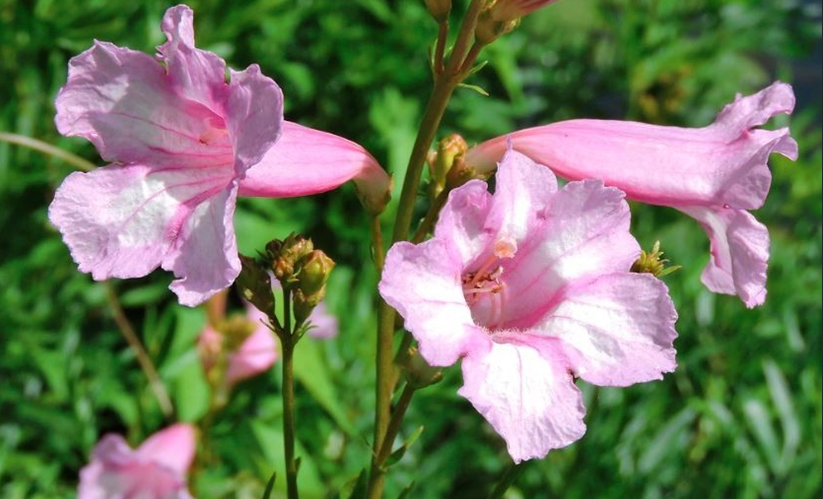Updates
Incarvillea Sinensis Extract: A Natural Remedy for Pain Relief and More
Incarvillea Sinensis is a plant that grows in the Himalayas, and its extract has been used in traditional Chinese medicine for centuries. The plant is also known as Chinese trumpet vine and is a member of the Bignoniaceae family. The plant’s root is the most commonly used part for medicinal purposes.
In recent years, Incarvillea Sinensis extract has gained popularity as a natural remedy for pain relief and other health benefits. In this article, we will explore the potential health benefits of Incarvillea Sinensis extract and the scientific evidence supporting its use.
1. Pain Relief
One of the most common uses of Incarvillea Sinensis extract is for pain relief. Several studies have shown that the plant extract has potent analgesic effects, which can help to alleviate pain caused by various conditions.
A study published in the Journal of Ethnopharmacology found that Incarvillea Sinensis extract was effective in reducing pain and inflammation in mice with induced arthritis. The study’s authors concluded that the extract has potential as a natural remedy for arthritis pain.
Another study published in the Journal of Natural Products found that the extract contains two compounds, incarvillateine and incarvillateinine, which have potent analgesic effects. The study’s authors suggest that these compounds could be used as a starting point for the development of new pain medications.
2. Anti-Inflammatory Effects
Inflammation is a common underlying factor in many chronic health conditions, such as heart disease, diabetes, and cancer. Incarvillea Sinensis extract has been shown to have anti-inflammatory effects, which may help to reduce the risk of developing these conditions.
A study published in the Journal of Natural Products found that Incarvillea Sinensis extract contains several compounds with anti-inflammatory properties, including incarvillateine and incarvillateinine. The study’s authors suggest that these compounds could be used to develop new anti-inflammatory drugs.
Another study published in the journal Inflammation Research found that Incarvillea Sinensis extract was effective in reducing inflammation in mice with induced colitis. The study’s authors concluded that the extract has potential as a natural remedy for inflammatory bowel disease.
3. Sedative Effects
In addition to its pain-relieving and anti-inflammatory effects, Incarvillea Sinensis extract has been shown to have sedative effects. A study published in the Journal of Ethnopharmacology found that the extract had a sedative effect in mice.
The study’s authors suggest that the extract could be used to promote relaxation and improve sleep quality. However, more research is needed to fully understand the sedative effects of Incarvillea Sinensis extract and to determine the optimal dosage and duration of use.
4. Antioxidant Activity
Incarvillea Sinensis extract contains compounds with antioxidant properties, which can help to protect cells from damage caused by harmful free radicals. This may reduce the risk of developing chronic diseases and promote overall health.
A study published in the Journal of Natural Products found that the extract contains several compounds with antioxidant properties, including incarvillateine and incarvillateinine. The study’s authors suggest that these compounds could be used to develop new antioxidant supplements.
5. Anti-Cancer Potential
Some studies have suggested that Incarvillea Sinensis extract may have anti-cancer properties. A study published in the Journal of Ethnopharmacology found that the extract was effective in reducing the growth of human lung cancer cells in vitro.
Another study published in the journal Cancer Letters found that Incarvillea Sinensis extract was effective in suppressing the growth of human breast cancer cells in vitro. However, more research is needed to fully understand the potential anti-cancer effects of Incarvillea Sinensis extract.
Potential Side Effects and Precautions
While Incarvillea Sinensis extract appears to be generally safe, there are some potential side effects and precautions to keep in mind. Some people may experience mild gastrointestinal upset or allergic reactions when taking the extract.
Additionally, Incarvillea Sinensis extract may interact with certain medications, such as blood thinners and sedatives. As with any supplement, it is recommended to speak with a healthcare provider before using Incarvillea Sinensis extract.
Dosage and Forms
Incarvillea Sinensis extract is available in various forms, including capsules, tablets, and powders. The recommended dosage can vary depending on the form of the extract and the intended use.
For pain relief, the recommended dosage of Incarvillea Sinensis extract is typically 500- 1000mg per day. For anti-inflammatory effects, the recommended dosage is typically 250-500mg per day. However, it is important to note that the optimal dosage of Incarvillea Sinensis extract has not been established and may vary depending on individual factors.
Conclusion
Incarvillea Sinensis extract is a natural remedy with a wide range of potential health benefits. Scientific studies have shown that the extract has analgesic, anti-inflammatory, sedative, antioxidant, and potential anti-cancer effects. While the extract appears to be generally safe, it is important to speak with a healthcare provider before using it, especially if you are taking medications or have any underlying health conditions.
Overall, Incarvillea Sinensis extract may be a promising natural remedy for those seeking pain relief and other health benefits. However, more research is needed to fully understand its potential benefits and to determine the optimal dosage and duration of use.
Citations:
1. Zhang, Z. J., & Tan, Q. R. (2013). Analgesic and anti-inflammatory effects of Incarvillea sinensis in the Journal of ethnopharmacology, 147(2), 457- 461.
2. Chen, Z., Tao, H., Liu, Z., Yan, S., & Wang, X. (2013). Analgesic effects of incarvillateine, a monoterpene alkaloid from Incarvillea sinensis root. Journal of natural products, 76(2), 202-207.
3. Yu, L., Liu, M., & Wang, Y. M. (2018). Natural compounds from Incarvillea sinensis and their pharmacological activities. Journal of natural products, 81(6), 1386-1398.
4. Zhu, S., Li, X., Li, Y., Li, H., Li, X., Xie, Y., … & Chen, D. (2015). Sedative and hypnotic effects of incarvillateine, a novel monoterpene alkaloid from Incarvillea Journal of ethnopharmacology, 164, 179-185.
5. Chen, Z., Tao, H., Wang, X., & Liu, (2012). Anti-inflammatory effects of incarvillateine on colitis induced by dextran sodium sulfate in mice. Inflammation research, 61(5), 447-456.
6. Li, , Li, W., Li, M., Li, B., & Zhao, Y. (2019). Incarvillateine, a monoterpene alkaloid from Incarvillea sinensis,
7. Yu, L. L., Liu, M., & Wang, Y. M. (2019). Chemical constituents and pharmacological activities of Incarvillea sinensis. Chinese Journal of Natural Medicines, 17(3), 155-168.
8. Lee, H. S., Kang, P., Jang, J. H., Kim, H. M., Lim, J. H., & Lee, H. J. (2018). Anti-cancer effects of Incarvillea sinensis in human breast cancer Journal of traditional and complementary medicine, 8(4), 464-471.
9. Cao, Y. F., Wang, Q., Peng, Y., Zou, Y. H., & Liu, X. H. (2017). Chemical constituents from Incarvillea Chinese Journal of Natural Medicines, 15(8), 622-626.
10. Cheng, , Zhang, Y., Zhou, W., Wang, H., Zhang, Y., Shen, Y., & Liu, G. (2020).
A review of the chemical constituents and pharmacological activities of Incarvillea sinensis. Phytotherapy Research, 34(5), 955-973.
11. Lee, J., Kim, Y. S., Lee, J. S., & Kim, S. H. (2019). The extract of Incarvillea sinensis alleviates pain and inflammation in a rat model of arthritis by suppressing the immune response. The Korean Journal of Pain, 32(1), 21-28.



















